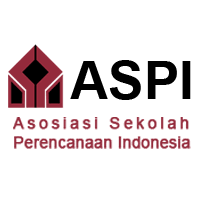Kualitas Hidup Masyarakat Desa Wisata Adat Ngadas Kecamatan Poncokusumo Kabupaten Malang
DOI:
https://doi.org/10.21776/ub.takoda.2021.013.02.3Keywords:
kualitas hidup masyarakat, desa wisata, analisis faktor konfimatoriAbstract
Desa Wisata Adat Ngadas merupakan salah satu desa wisata berlokasi di Kecamatan Poncokusumo Kabupaten Malang. Keanekaragaman bentang alam dan tempat bermukimnya suku Tengger yang memegang teguh adat dan tradisi yang menjadikan daya tarik wisata Desa Ngadas. Seiring berjalanannya waktu wisatawan berkunjung semakin meningkat, hal ini memberikan pengaruh terhadap kualitas hidup masyarakat setempat. Tujuan dari penelitian ini adalah mengetahui tingkat kualitas hidup berdasarkan persepsi masyarakat dan identifikasi faktor yang memiliki pengaruh signifikan terhadap kualitas hidup. Metode analisis yang digunakan adalah statistik deskriptif dan analisis faktor konfimatori (CFA). Berdasarkan hasil analisis statistik desripitf dapat diketahui kualitas hidup masyarakat bernilai 3,63 dengan kategori sedang serta faktor yang mempengaruhi kualitas hidup masyarakat adalah material well-being dan health and safety well-being.References
Abdillah, F., Damanik, J., Fandeli, C., & Sudarmadji, S. (2015). Perkembangan Destinasi Pariwisata dan Kualitas Hidup Masyarakat Lokal. MIMBAR, Jurnal Sosial Dan Pembangunan, 31(2), 339. https://doi.org/10.29313/mimbar.v31i2.1441
Abdurahman. (2017). Quality of Life Masyarakat lokal di kaawasan wisata gili Trawangan. Skripsi. Tidak dipublikasikan. Malang: Universitas Brawijaya.
Arida, I. N. S., & Pujani, L. K. (2017). Kajian Penyusunan Kriteria-Kriteria Desa Wisata Sebagai Instrumen Dasar Pengembangan Desawisata. Jurnal Analisis Pariwisata, 17(1), 1–9.
Benckendorff, P., Edwards, D., Jurowski, C., Liburd, J. J., Miller, G., & Moscardo, G. (2009). Exploring the Future of Tourism and Quality of Life. Tourism and Hospitality Research, 9(2), 171–183. https://doi.org/10.1057/thr.2009.7
Disparbud Kab Malang. (2020). Statistik Pariwisata Kabupaten Malang. Kabupaten Malang: Dinas Pariwisata dan Kebudayaan Kabupaten Malang.
Etikan, I. (2016). Comparison of Convenience Sampling and Purposive Sampling. American Journal of Theoretical and Applied Statistics, 5(1), 1. https://doi.org/10.11648/j.ajtas.20160501.11
Ghozali, I., & Hengky, L. (2015). Partial Least Squares Konsep, Teknik, Dan Aplikasi Menggunakan Program SmartPLS 3.0 (2nd ed.). Semarang: Universitas Diponegoro.
Jurowski, C., & Brown, D. O. (2001). A Comparison of the Views of Involved versus Noninvolved Citizens on Quality of Life and Tourism Development Issues. Journal of Hospitality and Tourism Research. https://doi.org/10.1177/109634800102500401
Ketchen, D. J. (2013). A Primer on Partial Least Squares Structural Equation Modeling. In Long Range Planning (Vol. 46). https://doi.org/10.1016/j.lrp.2013.01.002
Kim, K. (2002). The effects of tourism impacts upon Quality of Life of residents in the community. Disertasi. Blacksburg, Virginia: Virginia Polytechnic Institute and State University
Laratmase, A. J. (2016). Pengembangan Alat Ukur Kualitas Hidup Nelayan. Jurnal Ilmiah Pendidikan Lingkungan Dan Pembangunan, 17(01), 34–41. https://doi.org/10.21009/plpb.171.04
Marans, R. W., & Stimson, R. (2011). Investigating Quality of Urban Life Theory, Methods, and Empirical Research. Social Indicators Research Series, 45, 450. https://doi.org/10.1007/978-94-007-1742-8
Nugroho, M. A., & Prananta, R. (2018). Pengembangan Potensi Desa Wisata Pocangan Kecamatan Sukowono Kabupaten Jember Berdasarkan Analisis 4a: Attraction, Accessibility, Amenities Dan Ancillary Service. Pengembangan Pariwisata Yang Berkelanjutan: Inovasi, Teknologi Dan Kearifan Lokal, 123–134.
Pemerintah Desa Ngadas. (2019). Rencana Pembangunan Jangka Menengah Desa Ngadas Tahun 2015-2019. Malang: Pemerintah Kabupaten Malang
Sugiyono. (2013). Metode Penelitian Kuantitatif, Kualitatif dan R&D.Bandung: Alfabeta.C
Downloads
Published
How to Cite
Issue
Section
License
Copyright (c) 2022 Satria Arif Santosa, Dian Dinanti, Nindya Sari

This work is licensed under a Creative Commons Attribution 4.0 International License.
Authors who publish with this journal agree to the following terms:
- Authors retain copyright and grant the journal right of first publication with the work simultaneously licensed under a Creative Commons Attribution License that allows others to share the work with an acknowledgement of the work's authorship and initial publication in this journal.
- Authors are able to enter into separate, additional contractual arrangements for the non-exclusive distribution of the journal's published version of the work (e.g., post it to an institutional repository or publish it in a book), with an acknowledgement of its initial publication in this journal.
- Authors are permitted and encouraged to post their work online (e.g., in institutional repositories or on their website) prior to and during the submission process, as it can lead to productive exchanges, as well as earlier and greater citation of published work (See The Effect of Open Access).



















